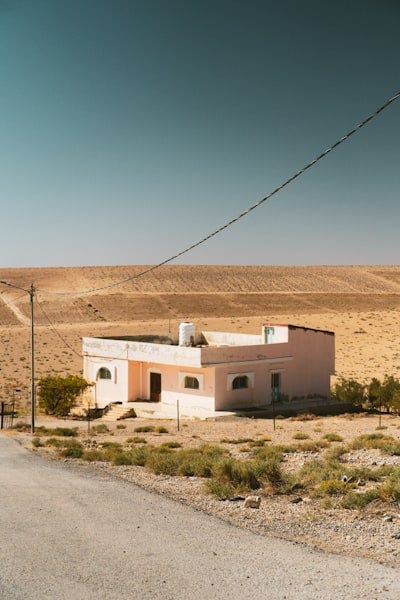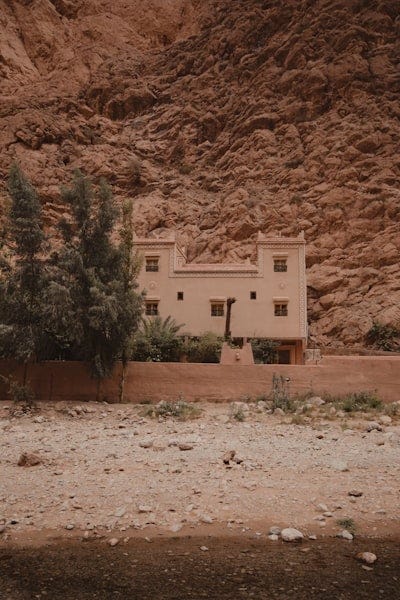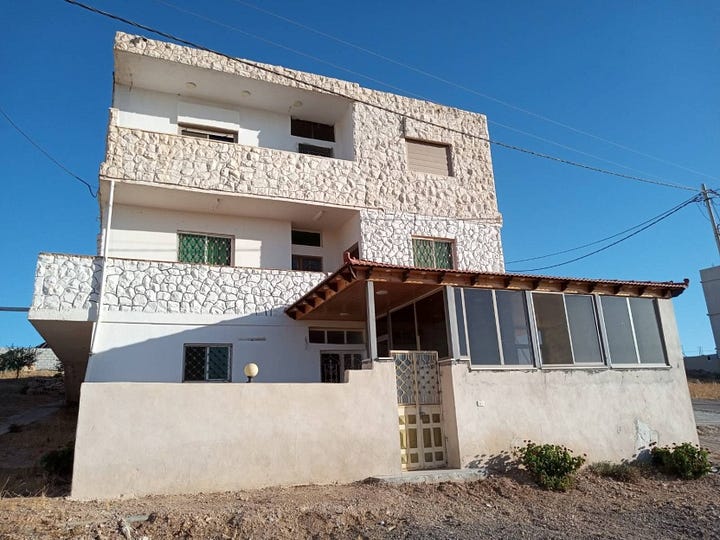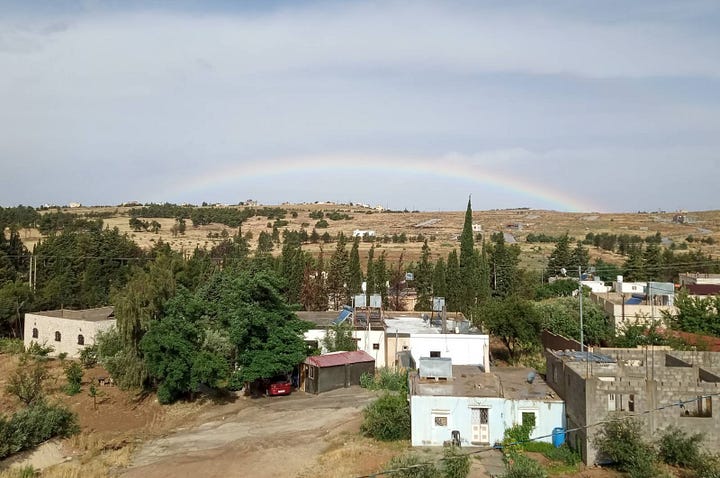



Have you ever wondered what it’s like to rent a home in the Middle East?
When you go to rent a place, you can’t just find a realtor and ask them to show you around. Nope, things work differently in the Middle East.
From searching for a home and finding the right place to handling your rent and utilities, you are sure to have a unique experience.
In this post, we will cover renting a home, heating, cooling, and obtaining water when living in a small Middle Eastern town.
Renting a Home
Renting in the Middle East is generally less expensive than in the U.S. Typically, the cost of rent in a smaller town is also less than in bigger cities. However, the selection of housing in the smaller towns is limited, especially for a large family like ours.
Our experience shows that landlords usually don't bother fixing up their apartments for potential tenants. The units are often run-down and in need of repairs. Typically, repairs are made only when negotiating a lease agreement.
Overall, repairs and workmanship tend to fall short of American standards. It has been helpful that we can perform basic repairs ourselves instead of relying on local workers.
Standard lease agreements are used, but many owners will make adjustments to suit the needs of their new tenants. Typically, rentals in smaller towns are unfurnished.
Heating and Cooling
Most homes are made of concrete and lack insulation. Therefore, it is challenging to heat and cool the rooms. Maintaining indoor comfort becomes especially difficult during summer and winter.
In addition, very few buildings have central AC systems. Many people will heat or cool one room at a time as they are using it.
Heating options include electric, propane, and kerosene space heaters. Split-unit air conditioners are also very popular and offer both cooling and heating. Unlike in the U.S., no major appliances are included with apartments.
In an unfurnished apartment, usually only basic lights and a small water heater (shown below) are provided. All appliances—such as stoves, ovens, air conditioners, heaters, fans, and even bathroom exhaust fans—are the tenant's responsibility.
Some things to know about the four heating options:
The propane tanks are delivered to our home. If we had a car, we could drive to the propane shop to exchange our empty tank. The stoves and gas heaters both run on these propane tanks. It costs approximately 10 USD to exchange our empty tank for a full one.
A variety of electric heaters can be purchased at hardware shops.
Kerosene heaters are installed in the room and have a duct pipe for the exhaust, which runs through the wall or ceiling. These heaters work well for small rooms, but they are not portable. The kerosene can be purchased at local gas stations. Again, a car would be helpful, but there are ways around having one, as our family has learned.
Split-unit ACs are common in bigger cities, where they can be purchased. These units are the most effective and cost-efficient to run. However, the smaller towns do not sell split-unit ACs.
The biggest impact on the cost of electricity is heating and cooling. The electric meters are read monthly. Electricity is billed on a tiered system, meaning the more kilowatt-hours you use, the more you pay per kilowatt-hour.
Water
The water supply is limited in small towns. This is true of the whole country, but in the smaller towns it is more noticeable.
The buildings have water tanks on the roofs. These tanks are either metal or plastic and store the water from the city.
The city water lines run to the rooftops and fill the tanks. Pipes run down from the tanks inside the walls and give water to the homes through a “gravity system.”
The small towns do not send water all the time. The water is rationed and our city sends water every four to five days.
If we are not careful to keep track of our water usage, our water tank may run dry. This may not be a problem for smaller families, but our family needs to keep a close eye on how full our water tanks are.
In addition, the city does not provide water pressure that is strong enough to reach the top of our building. To get water to our rooftop storage tank, we must use an electric water pump. Pumping requires about six hours each day we receive water.
A water meter tracks how many cubic meters are sent to our tank. The water bills are distributed monthly.
Since moving to the Middle East, our family has learned to ration water and not be wasteful. Our monthly bill for water is between 11-17 USD a month.
Final Thoughts
Our life in a small Middle Eastern town has made us go without many of the things we used to think were basic needs. We know that what certain parts of the world consider needs, people living in other parts of the world consider luxuries.
Next time you take a nice hot shower, consider only getting to shower every four to five days. If you continually have water brought to your home with good pressure, remember that much of the world does not have that luxury. This means if you water your garden, use outdoor water to wash your car, clean the patio, or the many other uses for outdoor water, you would have to wait several days for “water day.”
If you have electricity most of the time without power interruptions, remember that many people do not have that. Electricity in our town goes out frequently and is not stable. It has caused damage to our appliances, air conditioners, computers, and lights.
Over a long period of time, we become more thankful for so many of the necessities when we have them. Uninterrupted electricity, water to shower and do laundry, and a shelter to call home are all things for which we feel grateful.




